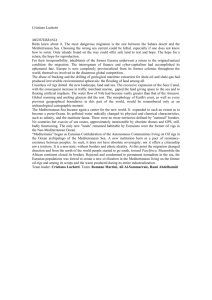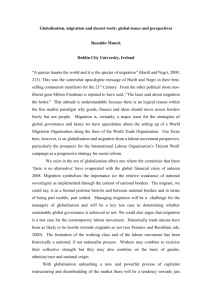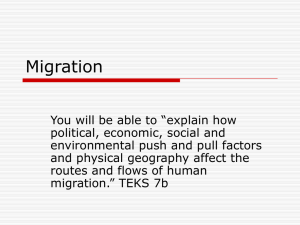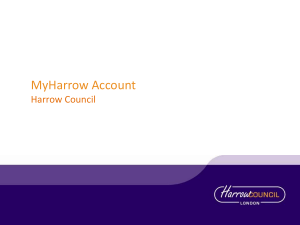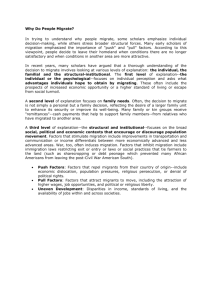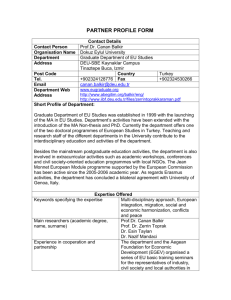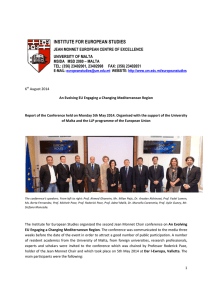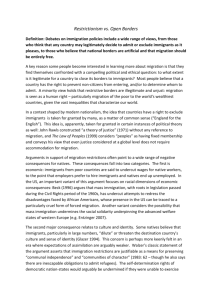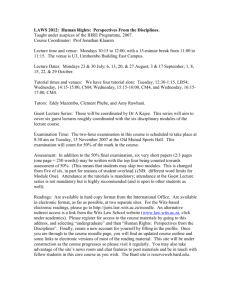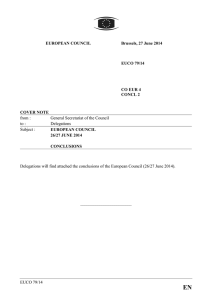The Departments of Anthropological Sciences, and International
advertisement
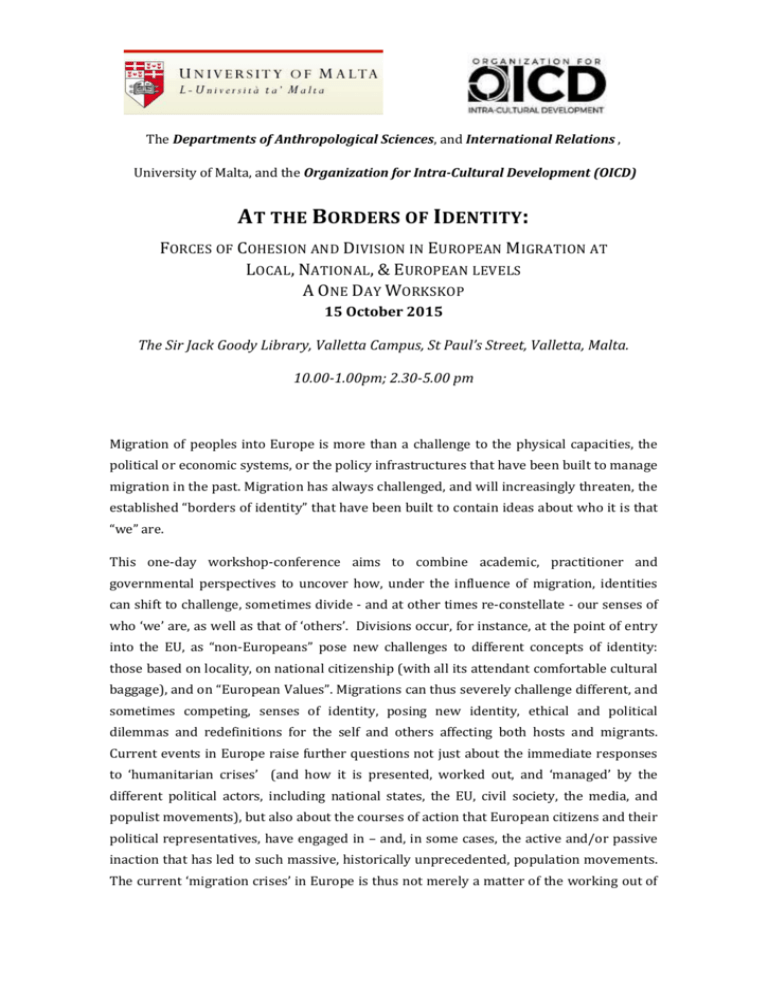
The Departments of Anthropological Sciences, and International Relations , University of Malta, and the Organization for Intra-Cultural Development (OICD) AT THE BORDERS OF IDENTITY: FORCES OF COHESION AND DIVISION IN EUROPEAN MIGRATION AT LOCAL, NATIONAL, & EUROPEAN LEVELS A ONE DAY WORKSKOP 15 October 2015 The Sir Jack Goody Library, Valletta Campus, St Paul’s Street, Valletta, Malta. 10.00-1.00pm; 2.30-5.00 pm Migration of peoples into Europe is more than a challenge to the physical capacities, the political or economic systems, or the policy infrastructures that have been built to manage migration in the past. Migration has always challenged, and will increasingly threaten, the established “borders of identity” that have been built to contain ideas about who it is that “we” are. This one-day workshop-conference aims to combine academic, practitioner and governmental perspectives to uncover how, under the influence of migration, identities can shift to challenge, sometimes divide - and at other times re-constellate - our senses of who ‘we’ are, as well as that of ‘others’. Divisions occur, for instance, at the point of entry into the EU, as “non-Europeans” pose new challenges to different concepts of identity: those based on locality, on national citizenship (with all its attendant comfortable cultural baggage), and on “European Values”. Migrations can thus severely challenge different, and sometimes competing, senses of identity, posing new identity, ethical and political dilemmas and redefinitions for the self and others affecting both hosts and migrants. Current events in Europe raise further questions not just about the immediate responses to ‘humanitarian crises’ (and how it is presented, worked out, and ‘managed’ by the different political actors, including national states, the EU, civil society, the media, and populist movements), but also about the courses of action that European citizens and their political representatives, have engaged in – and, in some cases, the active and/or passive inaction that has led to such massive, historically unprecedented, population movements. The current ‘migration crises’ in Europe is thus not merely a matter of the working out of immediate responses on the political and civil society level, but also a matter of horizons (geo-political, cultural, and temporal) about the nature of European, national, and local community engagement within its borders and beyond them. As incoming migrants are seen to challenge current EU arrangements and practices, national borders and capacities for national, social, and economic integration, and as an increasing awareness that borders of ethnicities, religions, cultures, etc. are becoming porous emerges, how will ‘European’, ‘national’, and local identities be worked out? As well as understanding the crucial forces of division, however, this conference also sets out to gain an insight into the opportunities for cohesion that migration brings. If this challenge to the borders of identity can be met with a strategic approach to engaging and expanding the cultural, national, and European symbols and ideas that people use to provide “identity” for themselves, then perhaps a more powerfully integrated EU, with more diversity-embracing national and regional entities, could be the result? FORMAT: There will be a number of key speakers in the morning to set the parameters of the debate, plus discussion. The afternoon sessions will have shorter presentations presenting different facets of the migration crises in Europe at the local, national and European levels from various perspectives. As this is a workshop designed to encourage debate and exploration there will be ample time for discussion of the issues, insights, and perspectives raised, SPEAKERS/PARTICIPANTS Include: Prof. Andreew Strathern & Prof. Pamela Stewart (Univ. of Pittsburgh), Prof Bruce While (Doshisha Univ., Japan, and OICD), Wayne Jordash QC (OICD), Prof P. Sant Cassia, Dr Carmen Sammut, Prof P. Clough, Dr D. Zammit, Mr R. Fsadni, (all Univ of Malta), plus researchers, Diplomats, Policy Makers, from various European countries and the EU, and representatives of NGOs. The Workshop is open to undergraduate and post-graduate students free of charge. Non-students are kindly asked to make a contribution of 10 euro at the door to cover the costs of refreshments (coffee, tea, etc), and the Programme. Registration will be effected at the door, but intending participants are encouraged to register their interest by emailing: annelise.calleja@um.edu.mt


